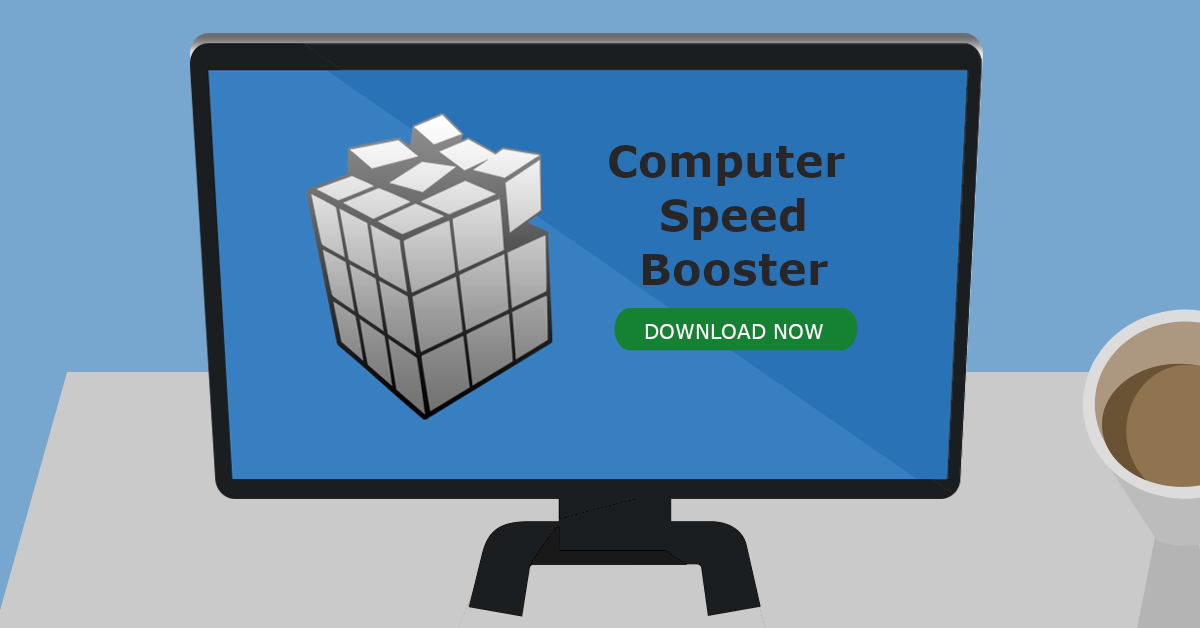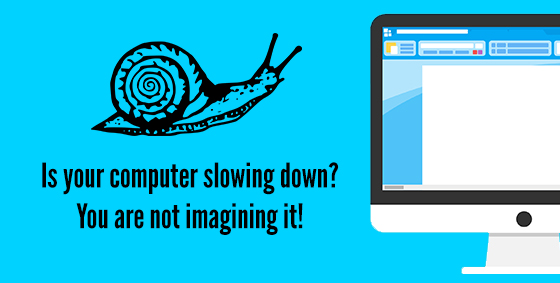
The easiest way to think of a solid-state drive (SSD) is as a super quick hard drive (HDD). Thus swapping your current HDD for a quick SSD is a simple and effective upgrade to breath new life into your computer or laptop.


The easiest way to think of a solid-state drive (SSD) is as a super quick hard drive (HDD). Thus swapping your current HDD for a quick SSD is a simple and effective upgrade to breath new life into your computer or laptop.

You probably have been alerted by popup windows while surfing the web. These popups claim your computer has thousands of errors requiring urgent attention. The popups offer a “solution” to cure your computers so called problems.
These advertisements are often described as Speed Booster or Speed Up utilities Reg and will attempt to convince the user they will somehow clean or improve their computer. Within the IT industry these programs are known as “scareware”. They are adverts and software programs specifically designed to convince you that your computer has problems – which it might not have.
Almost all popups and advertisements that use adverts saying “Fix now for free” or “Speed up your computer” are not trustworthy at all. They are little more than a scam attempting to take your money and / or install malware on your computer. At best these programs claim to scan your computer and show a list of plausible sounding computer problems. Using this, they will ask for payment to “fix” these problems and “speed up” your PC.
Some may even attempt to use these fake warnings and scare tactics to trick you into installing malware on your computers. Once installed, the malware can go many things including stealing files, accounting information, usernames, passwords, emails, and credit card details. Sometimes the first sign a user has that something is wrong is when they check their bank account!
Can software actually speed up my computer?
During normal computer usage you install and uninstall a variety of computer programs and applications may leave temporary files around or entries within the registry. Despite the large amount of “scareware” and fraudulent computer cleanup utilities out there, legitimate applications do exist that are designed to clean your system. This can be something we cover and is often done as a part of a complete computer tune up. The large speed boosts many of the fake utilities to unlock by simply moving files around are almost always false.
Most computer can have a speed boost by more conventional means which include a combination of temporary file removal, registry cleanup, startup file optimization as well as hardware upgrades.
Hardware components such as memory and a SSD upgrades can often be added to boost the speed of even an older PC and give it a new lease of life. Upgrading the computers RAM can double the working memory available to the system. With extra memory, many programs can keep more information available to work with. This upgrade reduces loading times and increases the computers ability to run more programs at once.
Switching from an older style mechanical hard drive to a modern Solid State Disk (SSD) can significantly reduce startup and loading times of any PC as well as speeding up application loading times. Loading data from the hard drive is very often the slowest part of a computer, the bottleneck in an otherwise very fast system. Because an SSD does not use any mechanical components the time to access the disk is nearly instant when compared to older, mechanical hard disks.
These upgrades offer boosts in speed to rival a modern system at only a fraction of the cost originally paid for the new computer. Performing some basic house keeping functions along with upgrading the RAM and swapping to an SSD will provide an instant, dramatic, and safe improvement to the speed of your PC.
If your computer is running slow give us at a call on 08 8326 4364 or
su*****@dp*********.au
and arrange a real and professional cleanup of your computer systems.
 Remember the way you felt when you turned on your new computer and up it came in a flash? Your computer was the envy of your business colleagues and you loved all that glory. Turn on your system and you were ready to go – those were the days!
Remember the way you felt when you turned on your new computer and up it came in a flash? Your computer was the envy of your business colleagues and you loved all that glory. Turn on your system and you were ready to go – those were the days!
After a few years the computer now doesn’t seem to be quite as fast. No, you’re not imagining it, it really has slowed down. There is a measurable drop in speed and power but the good news is that with a little maintenance your computer can be faster.
Let’s look at what items can slow computers down:
Start-up applications: A lot of applications automatically add themselves to start-up when the computer starts. It may be convenient to have programs start automatically but others may be a hindrance. In fact many of the applications starting themselves with the computer are of little usage and are the main reason your computer is running slow.
For example, the iTunes helper loads in the background to speed things up when you connect your device – but if you can’t even remember the last time you ran iTunes on your computer then it is probably unnecessary and can be deleted from start-up. Programs like this are using your computer resources and adding to your speed issues. Some computers automatically load all sorts of programs which can be safely stopped from automatically loading.
Temporary junk: Computers programs leave temporary files and snippets of information all over your hard drive, each action leaving a trail rather like a roaming toddler with sticky fingers. Every webpage you visit, every program you run and every game you play leaves something behind.
It may be the tidbits of information called temporary internet file, cookies, saved game files, auto-restore files or even log files that are clogging your system.The more junk your computer builds up, the slower it gets.
Viruses and malware: These infections sit in the background consuming computer resources while doing various dangerous and unwanted things. They may be spying on your actions, stealing your information or reaching out through your network to infect others. Sometimes the impact is limited to seeing your computer slow to a crawl but other infections can easily reach into the thousands of dollars with lost data and productivity.
Bloating: With every new version of software comes a new set of features and other “improvements” – some are beneficial to you while others are not. The problem with this is that the applications becomes larger and larger with each new version and require more system resources to run – and slowing your computer down.
Hardware Issues: As with anything the older things get the more chances of failure or other issues occuring. Hard drives can have trouble reading data and fans get clogged with dust and cause over heating issues. A simple internal cleanout of the computer or a replacement hard drive (or even better an upgrade to a SSD) can bring the speed back to your computer.
Just like a car, computers need regular maintenance – check out our blog on computer maintenance for some hints and tips. We also offer a Tune-Up service to bring your computer back to its original speed and extend its life. If you are in Adelaide South Australia then email us now at
su*****@dp*********.au
to book your computer in for a tune up.